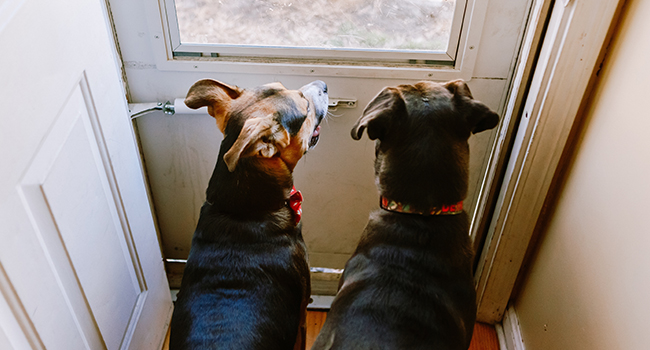

Separation anxiety is a common behavioural issue among dogs, impacting their well-being and causing distress for both pets and owners. Dogs, being social animals, often form strong bonds with their human companions, making periods of separation challenging. Understanding and addressing separation anxiety requires patience, consistency, and a thoughtful approach tailored to your dog's individual needs.
Imagine returning home after a long day at work to find your beloved dog has chewed up the furniture, urinated indoors, or incessantly barked in your absence. These behaviours are not signs of disobedience but often symptoms of separation anxiety, a condition that affects many dogs worldwide. In this article, we explore practical strategies and tips to help pet owners manage separation anxiety effectively, ensuring both their dogs' happiness and their own peace of mind.
Separation anxiety is rooted in a dog's fear of being separated from their owner or the family pack. This anxiety can manifest in various ways, such as destructive behaviour, excessive barking, pacing, or attempts to escape. It is crucial to distinguish separation anxiety from general mischief or boredom, as misdiagnosis can lead to ineffective solutions.
Identifying the signs of separation anxiety is the first step towards addressing the issue:
Destructive Behaviour: Scratching doors, chewing furniture, or digging.
Excessive Vocalization: Persistent barking, whining, or howling.
Toileting Inside: Urinating or defecating indoors despite being house-trained.
Pacing or Restlessness: Constant movement or inability to settle.
Attempts to Escape: Trying to break out of confinement or exit the home.
Recognizing these behaviours in your dog can help you intervene early and implement appropriate strategies.
Establish a Predictable Routine
Dogs thrive on routine. Establishing a consistent schedule for feeding, exercise, and playtime can help reduce anxiety. Knowing what to expect provides a sense of security for your dog.
Gradual Desensitization
Help your dog become accustomed to periods of separation by gradually increasing the time you spend away. Start with short absences and gradually extend the duration. This process, known as desensitization, helps build your dog's confidence and tolerance for being alone.
Create a Safe Space
Designate a comfortable and secure area for your dog when you're away. This could be a crate or a quiet room with familiar bedding and toys. Ensure the space is associated with positive experiences, such as treats or favourite toys.
Provide Mental Stimulation
Engage your dog's mind with interactive toys, puzzles, or treat-dispensing gadgets. Mental stimulation can alleviate boredom and anxiety, keeping your dog occupied during your absence.
Avoid Punishment
Never punish your dog for exhibiting separation anxiety behaviours. Punishment only increases fear and anxiety, exacerbating the problem. Instead, focus on positive reinforcement for calm behaviour and gradual improvement.
Consider Natural Remedies or Supplements
Consult with your veterinarian about natural supplements or calming aids that may help alleviate anxiety in dogs. Options such as pheromone diffusers, herbal supplements, or anxiety wraps can complement behavioural training.
Seek Professional Guidance:
If your dog's separation anxiety persists despite your efforts, seek guidance from a professional dog trainer or animal behaviourist. They can provide tailored advice and techniques to address specific behaviours and enhance your training approach.
Managing separation anxiety in dogs requires understanding, patience, and a commitment to positive reinforcement. By implementing a structured routine, gradual desensitization, and creating a safe environment, you can help your dog feel more secure and confident when left alone. Remember, each dog is unique, so be flexible in your approach and seek professional assistance when needed.
At Eden Pets Care, we understand the challenges of managing separation anxiety in dogs. Our experienced team, led by Dr. Shinu Luther, offers compassionate veterinary care and behavioural advice tailored to your pet's needs. Contact us today to learn more about how we can support you and your dog in overcoming separation anxiety.
In conclusion, by adhering to these guidelines and tailoring them to your dog's specific needs, you can help mitigate separation anxiety and foster a happier, more relaxed relationship with your beloved pet.